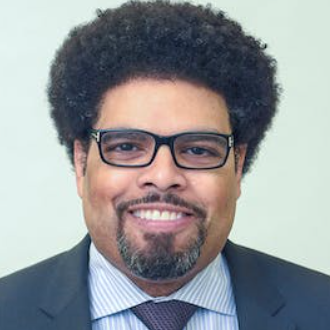OPINION: Vermont ‘Baby Bonds’ would create economic opportunity
February 9, 2024 | By Darrick HamiltonRecently, Vermont state Treasurer Mike Pieciak, Sen. Kesha Ram Hinsdale, D-Chittenden Southeast, and Rep. Daniel Noyes, D-Wolcott, introduced a ‘Baby Bonds’ initiative, a program that would invest $3,200 for every low-income Vermont child born on Medicaid. Those investments would grow with each child, becoming available at young adulthood for wealth-building purposes. As an economist, I helped design the concept of Baby Bonds as a means of generating wealth and granting financial independence — a tool for individuals to escape the iterative confines of systemic asset poverty.
Here’s how the treasurer’s Baby Bonds proposal works: Between the ages of 18 and 30, participants could access the returns of the investment (estimated $10,000 by age 18 and $25,000 by age 30), for wealth-building activities including buying a home in Vermont, starting or investing in a business in the state, paying for college or other post-secondary education or training, or saving for retirement. The program will be complemented by a financial education program to provide young people with support – often reserved for the most affluent – to make the best use of these resources.
We often think of wealth as an outcome, but its true essence is functional – that is, what wealth can do for you. Wealthier families are better positioned to finance elite education, access capital to start a business, reside in higher amenity neighborhoods, exert political influence, purchase better counsel if confronted with an expensive legal system, leave a bequest, and withstand financial hardship resulting from any number of emergencies.
Over the last several decades, wealth in the U.S. has become increasingly concentrated at levels not seen since preceding the Great Depression. Low-income households are compelled to turn to high-cost unconventional alternative financing. They generally are aware these products are predatory but have no alternatives. These debt traps render a sad irony in which those who can least afford finance in times of dire need end up paying the most for finance, having to pay higher and higher interest and fees until they default on the original principal.
Baby Bonds would set money aside before or shortly after a newborn’s birth and place it in trust as an investment for that child’s future. The program provides finance at the critical age of young adulthood to help build a lifetime of economic security. It complements existing programs by providing a more comprehensive social security from cradle to grave.
Wealth inequality is structural, not behavioral. Baby bonds could help eliminate the transmission of economic advantage or disadvantage across generations and establish a more moral and decent economy that facilitates assets, economic security, and social mobility regardless of the race and family economic position in which an individual is born.
In Vermont, Baby Bonds would incentivize young Vermonters to remain in the state and support rural regions of the state where there is a higher concentration of poverty. We applaud Vermont’s leadership in considering Baby Bonds, a transformational investment for a more inclusive and productive future.
Darrick Hamilton
Economist and researcher Darrick Hamilton, Ph.D., is the Henry Cohen Professor of Economics and Urban Policy and the founding director of the Institute on Race, Power and Political Economy at The New School in New York City. Hamilton is the leading architect and national proponent of baby bonds.

